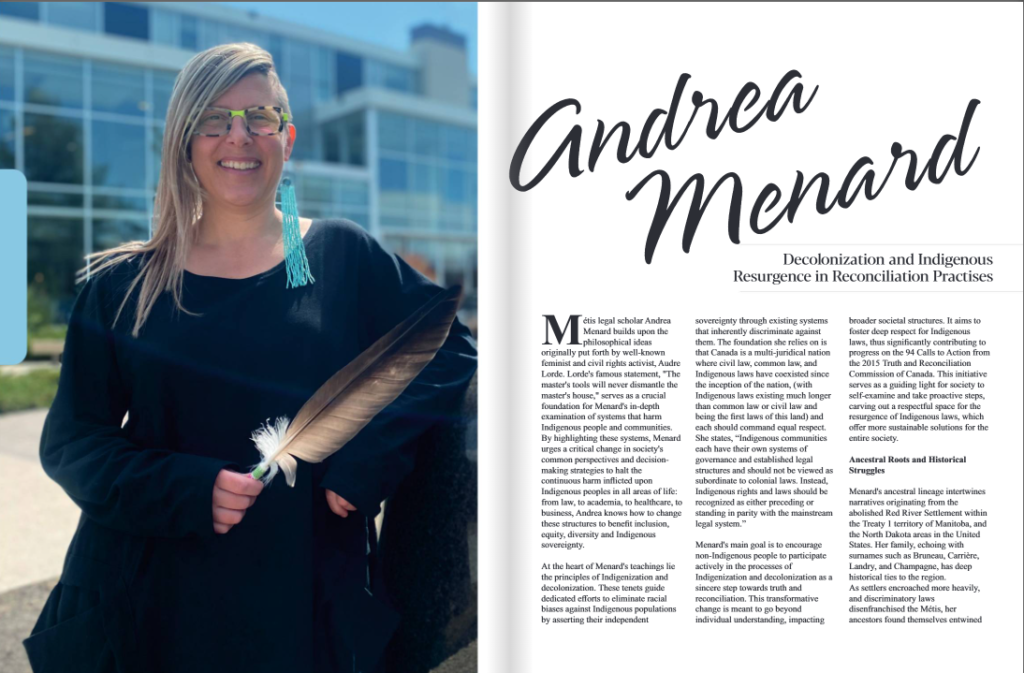
Organizational Evolution through Cutting-Edge Decolonization
The landscape of professional work environments, particularly within settler colonial institutions, remains steeped in historical and systemic power structures that can hinder the flourishing of Indigenous professionals. My research seeks to challenge and reconstruct those structures through a comprehensive transdisciplinary approach that integrates insights from law, sociology, and applied social sciences. By employing a mixed-methods strategy that includes autoethnography, narrative analysis, and qualitative interviews, this study aims to illuminate the lived experiences of Indigenous professionals navigating these workspaces.
The research operates under several premises. Firstly, it assumes that workplaces—especially those with strong historical roots in colonial societies—retain social dominance hierarchies that have material and psychosocial impacts on Indigenous people (Sidanius & Pratto, 2001). Secondly, it presupposes that Indigenous legal traditions and understandings of justice have generally been marginalized within most dominant institutional frameworks (Borrows, 2002). Finally, my study presumes that authentic change in workplace culture can be effectively driven by engaging with the knowledge and experiences of Indigenous professionals themselves, both through scholarly research and policy-making.
The work is critically important on multiple fronts. For one, it endeavors to impact policy, practice, and the well-being of Indigenous professionals by illuminating systemic barriers and identifying pathways for transformation. My research is situated to articulate a model of structural change that aligns with international and national frameworks advocating for Indigenous rights, including the United Nations Declaration on the Rights of Indigenous Peoples (UNDRIP), the Truth and Reconciliation Commission of Canada’s Calls to Action (TRC), the National Inquiry into Missing and Murdered Indigenous Women and Girls’ Calls for Justice (MMIWG2S), and British Columbia’s Declaration on the Rights of Indigenous Peoples Act (DRIPA).
Ultimately, my research holds a dual purpose: to produce a scholarly work that contributes to the academic discourse surrounding social dominance, legal pluralism, and Indigenous methodologies; and to manifest a real-world impact by providing actionable recommendations for creating institutional changes conducive to the self-actualization and professional growth of Indigenous individuals.
You are invited to connect with Andrea Menard and explore her transformative approaches in organizational development via her professional LinkedIn profile

